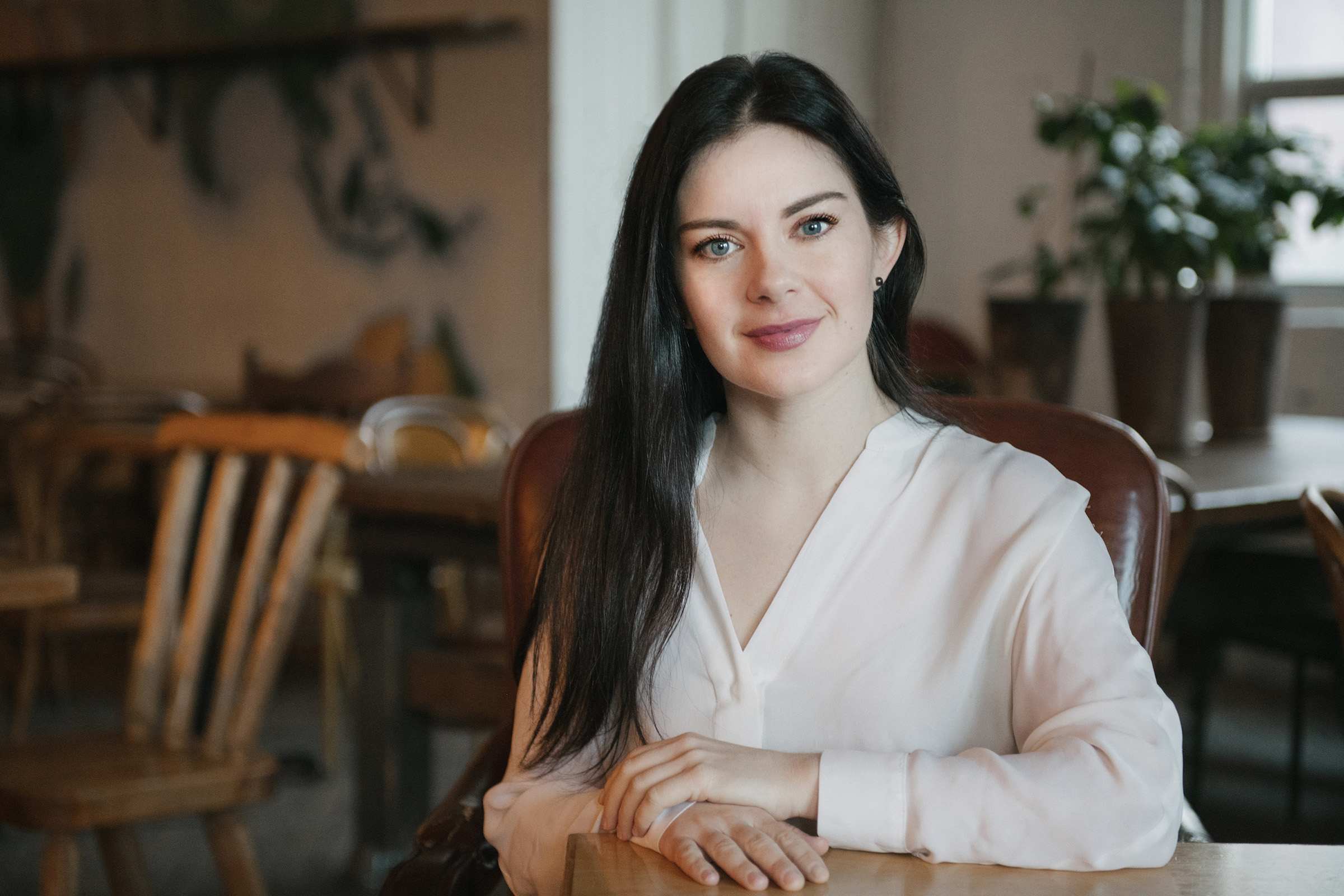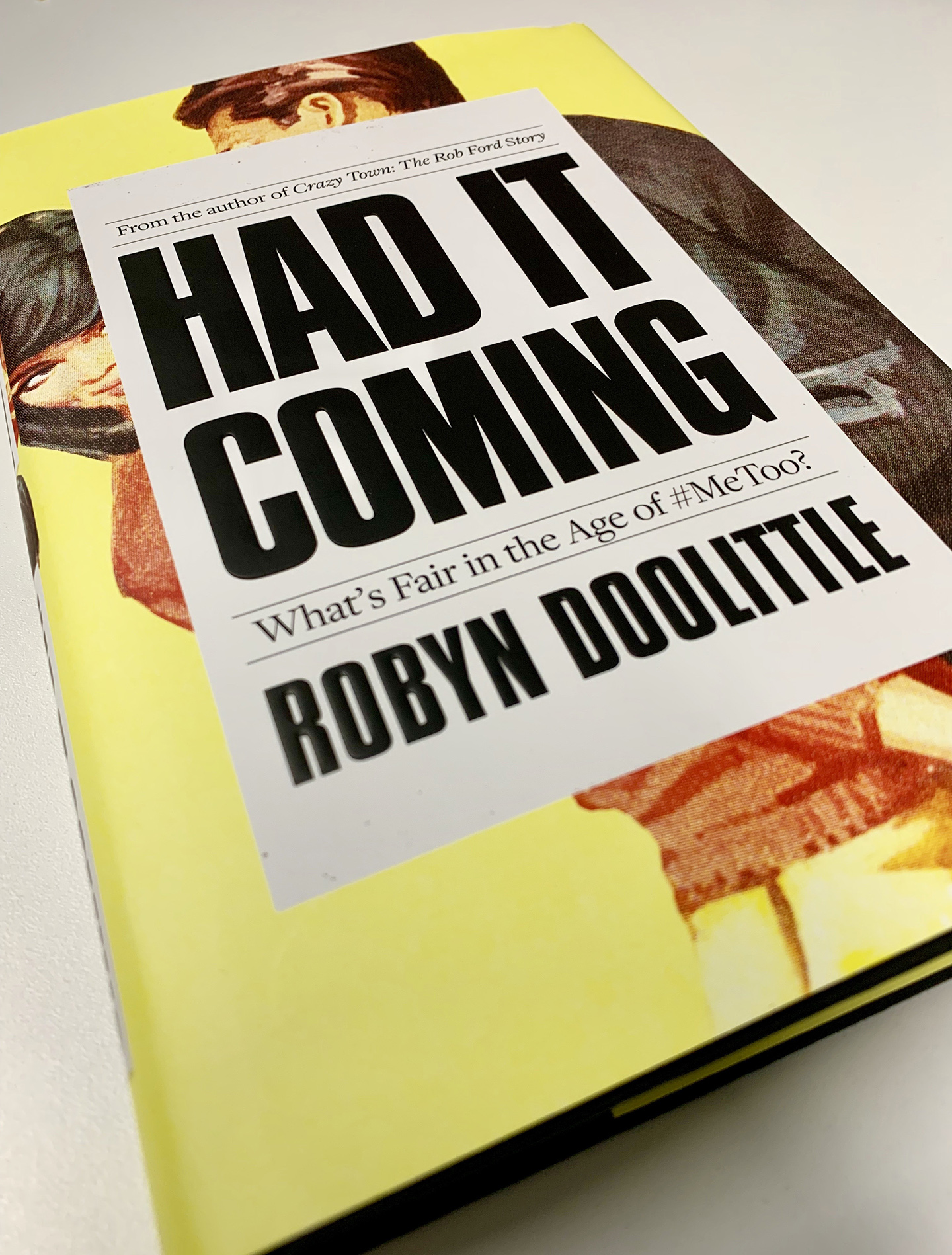Had it Coming: Robyn Doolittle's Book Launch

Photo by Galit Rodan.
Robyn Doolittle, Globe and Mail investigative journalist, has launched her latest book Had It Coming (external link) and it's got everyone talking.
The book, released Sept. 24, reveals how sexual harassment and the attitude toward rape culture are changing in the #MeToo movement.
She is looking beyond individual cases and into the bigger picture of consent. The book picks up from her famous 2017 Globe report “Unfounded” (external link) , which looked at two years of sexual assault cases (mis)handled by Canadian police.
Below is a Q&A with the author:
What first made you interested in investigating how sexual assault cases were handled by the police?
In 2015, I was looking for my next big investigation. At the time, the Jian Ghomeshi trial was everywhere in the city and I kept ending up in the same conversation over and over again. How the criminal justice system fails sexual assault compliant, and I wanted to know if that was actually true…and that's when I started my Unfounded series. I wanted to quantify rape culture. Is there a way to defintively prove that sexaul assault complaints are treated differenlty than other allegations? And the answer is yes.
What surprised you about your investigating?
I'm not sure I can say I was surprised by a lot of what my investigations found. My reporting shows that women across the country have sexual assault complaints that are not dealt (with) seriously all the time by police services. Cases are not necessarily investigated properly and disclose as false or unfounded compared to other types of crimes.
What was the most unexpected outcome of the Unfounded investigation?
I think the big thing was the police services reacted so quickly. When I was doing my reporting, I faced a lot of push back from law enforcement across the country. But once the series ran, everyone moved immediately to pledge action. So more than 30,000 sexual assault cases have been reviewed as a result of the series. Half of the country is now enforcing new policies, procedures and training in regards to dealing with sexual assault cases.
What was the most rewarding aspect of it?
I’m incredibly proud of the series and the action that it has brought. I think the most rewarding thing for me was interviewing and investigated 54 specific complaints in addition to collecting statistics from 800 jurisdictions. A lot of the women that I interviewed for the series were reluctant to participate to go through that pain of sharing their story. It was rewarding to see them come forward with their story. If my series had just been statistics, people wouldn't have had the same kind of reaction.
Why did you want to turn the investigation into a book? Why was it important to expand on that story now?
When I was doing my Unfounded series, I was trying to answer the question of why these cases were being dismissed compared to other crimes—and the answer always came back to stereotypes. Police are people too and they were harbouring the same outdated ideas culturing how victims act. Like how women should behave about sex and power. So when #Metoo broke out, it seemed like a natural extension. I was taking what I learned in my reporting of my Unfounded series and looking at the issues associated with the #MeToo movement.
What were some of the challenges you had when writing this book? How were they different or the same from reporting the Unfounded investigation?
What I'm trying to do with this book is addressing a different aspect of the conversation that has come out of #Metoo. So I spend a chapter at looking at rape culture and why does it exist. A chapter on the Canadian legal system and how it’s working and not working. A chapter on speaking about trauma, looking at the questions that are really complicated issues around consent and the generational divide. How women are experiencing #MeToo differently depending on how old they are. I look at how social media plays a role in this movement. I'm trying to bring the conversations that women and men are having in private, into the public.
I started to think about #MeToo and I thought I had clear ideas about all these issues because I have spent so long immersing the topic. So when I began digging into it, it wasn't clear. Consent is a complicated issue. Sometimes we get stuck talking about consent from a legal perspective rather than using an ethical or moral lens. It's not really serving very well and leads a lot of confusion. I was having this conversation with my girlfriend and society isn't good at having these discussions and people are afraid of being blasted for saying the wrong thing. So I'm trying to get into these messy conversations and issues with the book and saying to people it's okay to have questions that might not be popular.
What do you want readers to take-away from this book?
Have these discussions to integrate our ideas and biases and how we got to this point. Ultimately, the conclusion that I reached the pass #MeToo has been loss. It didn't start with Harvey Weinstein. A hashtag is not going to change overnight. #MeToo made us realize that it's still a really big problem. We need to see the problem in order to fix it and that's what we are doing right now. We need to now sort through why are these still so pretentious in our society than we can move forward.
Talking to sexual assault survivors is difficult. What advice would you give to journalism students if they are dealing with this topic in a story?
Don't be pushy. You want to make the case to someone on why they should trust you. Due to how fast the news moves, it can be exploited. When you ask to talk to someone that has been going through something so personal, you want to come at it with care. I always gave everyone the option of backing out of the story up to a certain date just to let them know they have control of the situation. You always have to be upfront. My job is to report the news and the facts and I need to investigate these cases so the story will be stronger with more information that I have. Don't shy away from vigorous reporting, but do it with respect and be aware of everything.

